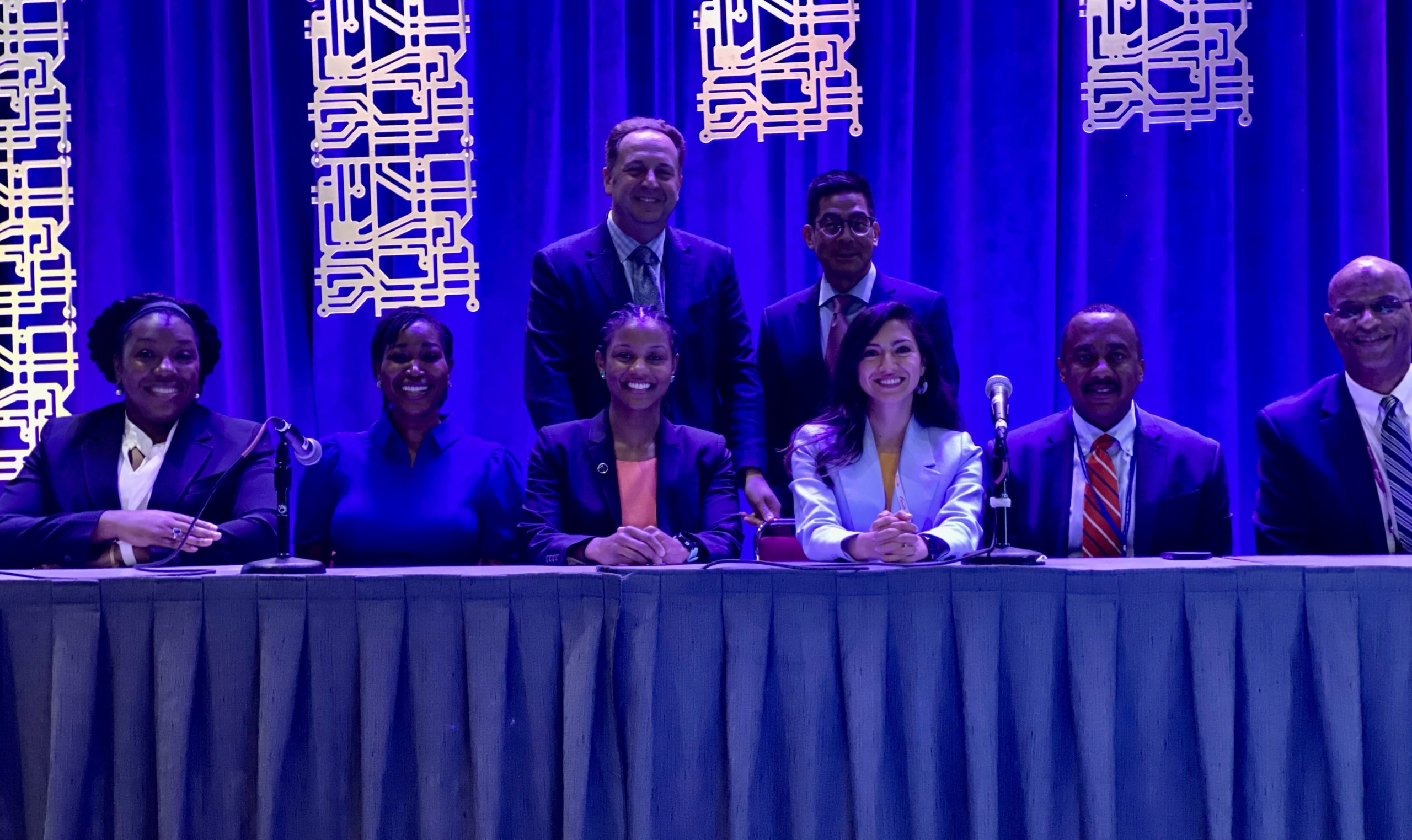In honor of Black History Month we’re highlighting some of our incredible members who are advancing diversity, inclusivity and opportunities for Black people within the GI field.
The phrase “Each One, Teach One” is an African proverb that originated due to the lack of education in Black communities with the idea to spread knowledge and education for advancement.
Through their mentor-mentee relationship, AGA President Dr. John Carethers and AGA FORWARD Program Scholar Dr. Rachel Issaka have exemplified this phrase for the betterment of the GI community. Read more on how they met and the importance of Black mentorship in GI below.
Dr. Issaka: I first met Dr. Carethers when he joined the University of Michigan as the chair of the Department of Medicine. I was a 4th year medical student and had matched into internal medicine with a plan to become a gastroenterologist. I was absolutely thrilled when I learned that he was also a practicing gastroenterologist! Now over a decade later, it feels like a full circle moment to be paired with Dr. Carethers through the AGA FORWARD Program.
Dr. Carethers: I would say thinking about her promotion to associate professorship. It is easy to forget the nuances of each institution’s promotion process, but throw in a separate Cancer Center structure that is separate from the University, as compared to the University structure, then things get really complicated. Fortunately, Dr. Issaka seems to understand their system(s) and I hope my advice helps her with this important milestone in her career. She deserves it and is wholly prepared to be at the associate level.
Dr. Issaka: I mentioned to Dr. Carethers that I was in the planning phase of my first R grant and was looking for resources to guide a successful transition from K to R award. He graciously (and quickly) reviewed material I sent him and carefully walked me through his approach sharing relevant examples in the process. I was struck by how generous he was with his time and advice, especially given multiple competing demands for his time.
Dr. Carethers: There are very few Blacks in medicine, let alone in GI. While most gastroenterologists migrate to practice, that leaves even fewer in the academic space.
Certainly, in my case and I suspect for Dr. Issaka, seeing someone from your background as a role model helps inspire possibilities for one’s career. Paying it back helps provide information that can accelerate the next generation’s planning, avoiding pitfalls that might deride career development, and also set up knowledgeable pathways that are more intentional and carefully crafted for potential success.
Dr. Issaka: Black people are often the “first, only, different” in their spheres, and this is true in GI as well. My mentors’ (including Dr. Carethers) willingness to share advice, resources, opportunities, etc. has been instrumental in my career. Mentorship has the potential to move us from having only a few Black gastroenterologists to a critical mass of Black gastroenterologists! I am grateful for the example that Dr. Carethers sets and it inspires me as I pay it forward. I hope it inspires others as well!

Dr. Rachel Issaka (second from left) and Dr. John Carethers (far right) pictured with DDW® 2022 AGA Presidential Plenary presenters.













